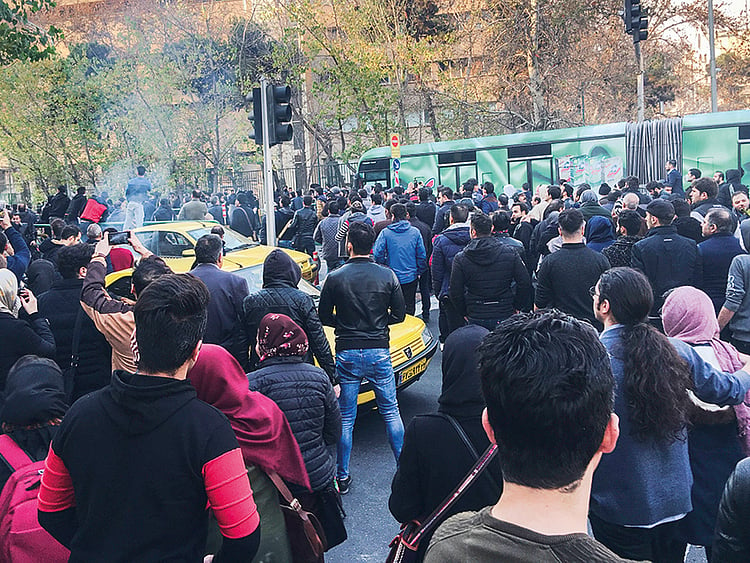Iranian forces were ‘shooting to kill’ protesters, says UN
Toll of 208 makes it the bloodiest unrest since the time of the Islamic Revolution

Also In This Package
Geneva: Iranian security forces were “shooting to kill”in their deadly crackdown against protesters in recent weeks, according to credible video footage, the U.N. human rights chief said Friday.
The unrest left at least 208 people dead nationwide, the office of High Commissioner for Human Rights Michelle Bachelet said, echoing a count also tallied by Amnesty International. Iran disputes death toll figures released by foreign organizations but has so far refused to any countrywide casualty or arrest figures.
Bachelet said footage received by her office appears to show demonstrators were gunned down while running away, or being shot “directly in the face and vital organs.”
Such actions amounted to “serious violations of human rights,” Bachelet said. She urged Iran to allow independent investigations into the violations, and release of all protesters who were unfairly stripped of their liberty during the crackdown.
“Verified video footage indicates severe violence was used against protesters, including armed members of security forces shooting from the roof of a justice department building in one city, and from helicopters in another,”Bachelet said.
“We have also received footage which appears to show security forces shooting unarmed demonstrators from behind while they were running away, and shooting others directly in the face and vital organs _ in other words shooting to kill ,” she added.
Extracting forced confessions
Bachelet’s office said it had received many reports of ill-treatment against people arrested, “including with the apparent aim of extracting forced confessions.”
The demonstrations began in mid-November after the government raised minimum gasoline prices. Cheap gasoline is practically considered a birthright in Iran, home to the world’s fourth-largest crude oil reserves despite decades of economic woes. That disparity, especially given Iran’s oil wealth, fueled the anger felt by demonstrators.
The toll of at least 208 makes it the bloodiest unrest in Iran since the time of the Islamic Revolution. The 2009 Green Movement protests that followed a disputed presidential election drew millions to the streets but saw far less killing.
The demonstrations show the widespread economic discontent gripping Iran since May 2018, when President Donald Trump imposed crushing sanctions after unilaterally withdrawing the United States from the nuclear deal that Tehran struck with world powers.
That decision has seen Iran begin to break limits of the deal, as well as a series of attacks across the Mideast that America has blamed on Tehran.
Sign up for the Daily Briefing
Get the latest news and updates straight to your inbox
Network Links
GN StoreDownload our app
© Al Nisr Publishing LLC 2026. All rights reserved.